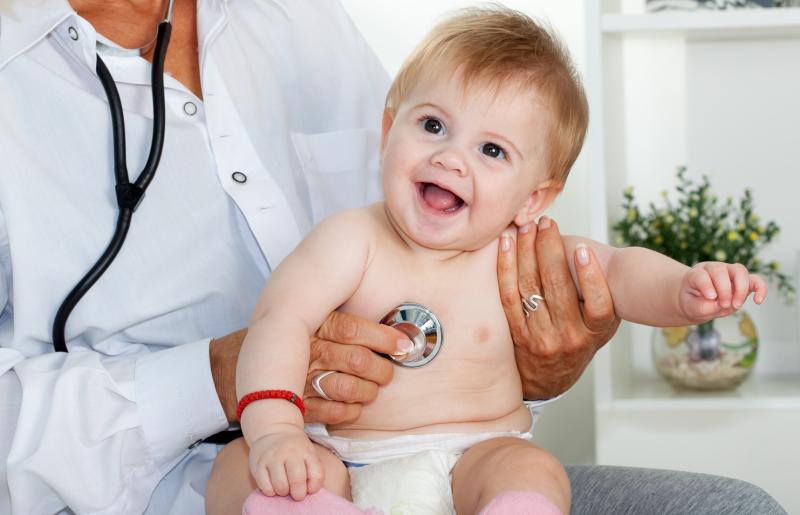
In children who have a family history of allergic diseases, exposure to oral antibiotics in early postnatal life does not appear to imperil lung function, a study reports.
The study included 620 infants with a family history of allergy. Researchers obtained parent-report of childhood antibiotic use from birth to 2 years, including type and indication. Spirometry was performed at age 12 and 18 years, and results were converted as z-scores. Furthermore, the children were genotyped for glutathione S-transferase (GST) superfamily to assess whether genetic mutations were associated with a greater risk.
Linear regression analysis revealed that neither the number of days nor timing of exposure to antibiotics was associated with reduced forced expiratory volume in 1 second (at 18 years per doubling of days of exposure, –0.03 z-score units, 95 percent confidence interval [CI], –0.11 to 0.04) or forced vital capacity (<0.01, 95 percent CI, –0.08 to 0.07).
There was no evidence that GST-risk polymorphisms (M1, P1 and T1) contributed to increased susceptibility, nor did specific types of antibiotics increase the risk of lung function deficits.
The present data provide some reassurance that early antibiotic exposure does not exert a negative effect on long term lung health, according to the researchers. Therefore, while unwarranted use of antibiotics in children should be lessened, concerns for long term lung health should not be a driving influence for this rationalization of use.